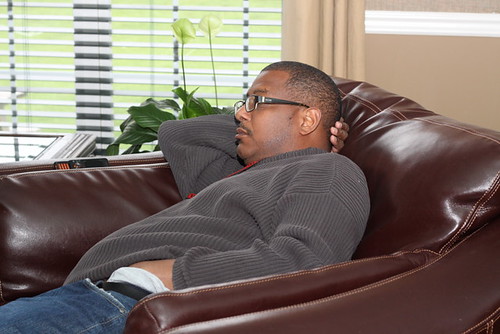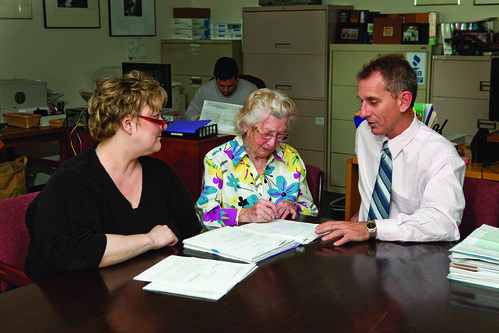
Image : http://www.flickr.com
Monday, May 31, 2010
A Comparison of the Violent Crime Rate Vs The Vehicle Fatality Rate in the US
Sunday, May 30, 2010
Criminal Record - Where To Find It

Image : http://www.flickr.com
Visit : Hipmore game sell annuity payments
Saturday, May 29, 2010
An Introduction to US Defense Lawyers

Image : http://www.flickr.com
Visit : Student Loan Blog game DC auto insurance Endowment Selling
Friday, May 21, 2010
Becoming a Lawyer

Image : http://www.flickr.com
Almost one million attorneys work, in order to assure the basic rule of the similar justice under law to the people of the United States. The law system is straight in such way wellbeing to me that I have to settle on to follow my vision and to exercise a career as an attorney.
While the time has I over careers studied, which I as much over learned it takes which, around to be located for an attorney and a life in America form has. An attorney in the United States to be located is very difficult. In order to set it simply, you graduate of the High School, go to the university and receive your bachelor degrees.
Then you must accomplish legal faculty and lead the staff examination. Generally for permission must too receive the staff examination in a STATE OF one for taking from an A.B.A to have graduated. (American staff connection) legal faculty approved. The Canadian schools are the authorized Riot A.B.A. The guidelines vary for each condition.
Most graduate of the legal faculty work in private practice with the enterprises, which exist out one to 10 attorneys. Most enterprises are cities or more populated ranges, which are simple, other business, to locate and in itself bring factories closer in, etc.
I personally to lower surface my enterprise in a largely populated city such as Louisville or Lexington would wish. Salaries for beginning attorneys in the Federal Government average approximately 37,000 dollar one year. In a private enterprise the average salary for a beginning attorney 41,000 dollar would amount to. If you have excellent recordings and honours in the legal faculty, you could acquire any where from 60,000 dollar to 95,000 dollar per year.
Some attorneys specialize, up, to guess Korporationen; some concentrate on taxation or on will confidence and deduction planning: somewhat general interest law of practice, for protecting the climate e.g. work. Approximately 10 per cent of attorney work for different government units either in the civilian or criminal law.
A much smaller number stand for teachers of the law, which becomes other judges. Others use its certified abilities and training on other areas. Some attorneys are corporative main leaders, Banker, legal matter reporters or school managers.
Tags : Digital Frame Hipmore game college loan consolidation Gamesthes
Thursday, May 20, 2010
Online Police Records Are Found in Police Report Public Records

Image : http://www.flickr.com
The growing number of criminal violations around the world is very alarming. It only implies that anywhere you go it's not a sure thing to say it's safe and no one's going to hurt you no matter what you do. Everyone must be aware that if some of the people whom you know cannot be totally trusted how much more those people you just barely met. As a precautionary measure, the best thing to do is conduct a police records search on someone in order to protect yourself and your family from any probable crimes.
It is mandatory that a particular government should make a complete compilation of all the offences that ever took place at each state level. This is executed by them as provided by law to supply the public with legal documents for whatever legitimate purposes. The public also has full right to search and view such official files to serve a lot of reasons. You just have to follow though the requirements needed at the assigned law enforcing offices in order to obtain the records.
The significance of the public police records is to allow you to check if a certain person had some bad reports in the past. This is very important so that anyone who comes in contact with that person at present or in the future may know his or her background in order to come up with an impartial judgement. These legal records are considered to be public domain; therefore, anyone who is interested in retrieving them is given the privilege to have them in possession. You just need to have the valid reason though why you need such pieces of information.
Transactions done at the government entities are typically time consuming due to the paper requirements and formalities that had to be undergone. If you are in a hurry to get them, then this whole process is probably not the best solution for you. Most of the time, it takes months before you eventually get hold of the reports. The answer to your urgent need is the existence of modern technology where you can directly acquire them online via the Internet.
They usually come in two versions; the free-of-charge or the subscription-based versions. The latter is more useful as it provides you with complete details of the data that you basically need. If you use them in court proceedings or in any serious undertakings then the paid version is certainly much more worth it. You can venture into paying a search firm or any private individual to perform the search for you. It cost much though, yet in return you get the complete facts of the legal documents.
With the advent of modern computerization and the Internet, the entire process of acquiring the said records has been made even faster and simpler these days. Plus, you can definitely do it yourself at home or wherever you are situated as long as you have the Internet access. It also means that you have total privacy in undergoing criminal investigation on a particular individual. There is nothing else that does a better job in performing a Police Reports Public Record search.
See Also : game federal criminal defense attorneys Austin dwi california Wells auto insurance
Tuesday, May 18, 2010
Defending Against False Allegations of Abuse - Defending Fathers

Image : http://www.flickr.com
October is "Domestic Violence" month. The goal of this declaration is to raise awareness about the high level of violence in families. However, it is also be a time to reflect on our laws, the inequities that they create and how you protect yourself against false allegations of abuse in a flawed legal system.
Gender Issues of Domestic Abuse
Today, a war rages over the issue of domestic abuse.
Women's groups contend that they are the primary victims of domestic abuse and have responded by orchestrating campaigns seeking sympathy for their position. These efforts have been amplified by high profile cases of alleged abuse by celebrities such as Ike Turner, O.J. Simpson, Mike Tyson, James Brown, and Tommy Lee. These cases and the campaigns the spawn are often the focus of media outlets around the United States. This attention over the past few decades has resulted in increased awareness of domestic abuse against women, and new laws to prevent domestic abuse - some that focus on women specifically. One of today's most visible examples is the Violence Against Women Act (VAWA), which came up for reauthorization in Congress this year. This gender specific legislation is one sided but appeals to sentiment and traditional social mores.
By contrast, until recently, men's groups have been significantly less vocal. More recent efforts, however, resulted in the House Judiciary Committee adding gender neutral language to the Violence Against Women Act in July 2005. Nonetheless, abuse against men by women is significantly under-reported for a number of reasons Moreover, men making such claims face a legal system that is significantly less sympathetic in its treatment of men. One thing is certain, compared to women, there are very few social programs or non-profit organizations to provide assistance to male victims of abuse or male victims of false allegations of abuse. Instead, every month seems to spawn new programs, clinics, shelters, advocacy groups, and counseling centers, dedicated to abuse of women issues.
Part of the problem is with statistics. It was once said that there are "lies, damn lies and statistics." Vast resources on domestic abuse exist with staggering disparities in the statistics that they cite. Statistics are, by their nature, manipulable and dependent on proper methodology and a vast myriad of societal variables. Some of the reasons cited for under-reported incidents of domestic abuse by women against men include the social stigma attached to it and the systematic bias against such claims by law enforcement personnel and the court system itself that has a chilling effect on reporting.
Regardless of "who did what to whom more often" arguments, the way in which the legal system addresses such claims paves the way for exploitation by participants making false claims of abuse.
False Allegations of Abuse
One of most significant criticisms of the legal system that addresses domestic abuse, includes the facility and regularity in which false allegations of abuse are made and believed by courts with the primary intent to seek an advantage in divorce and custody proceedings.
One of the major catalysts for this abuse of the system is the broad definition that exists for domestic abuse. Under most statutory schemes, domestic abuse means the intentional and unlawful infliction of physical harm, bodily injury, assault, or the intentional and unlawful infliction of the fear of imminent physical harm, bodily injury, or assault between family or household members, or a criminal sexual act, committed against a family or household member by another family or household member. "Fear of harm" is an extraordinarily subjective standard and one that may be very difficult to combat. A raised voice or a raised had or any gesture that is interpreted as threatening may be used to claim that domestic abuse has occurred. This is problem is compounded for men who are often larger than women and perceived as more aggressive or stronger based on broad societal generalizations that may be reflected in the perceptions of law enforcement officer who make police reports and court room judges who render rulings.
Consequences of Domestic Abuse Claims
Allegations of domestic abuse may have both civil and criminal consequences. In the civil context, an allegation of abuse may result in domestic abuse restraining orders, often called "Protective Orders." They may also have a criminal context related to assault or battery.
The significance of a judicial finding that domestic abuse has occurred is profound. In the context of criminal cases, incarceration or fines may be imposed and "no contact" orders entered which may include requiring the perpetrator to vacate the family residence or to have no contact between a parent and their children. In the civil context, including divorce and custody proceedings, the consequences are equally severe:
Presumption for Custody. Most states carry a statutory presumption that in the event domestic abuse has occurred, the perpetrator of that abuse should not be awarded physical placement or physical custody.
No Mediation of Disputes. It is also often presumed that where domestic abuse has occurred, mediation for family law disputes should not be required.
Restraints on Abusive Behavior. A domestic abuse restraining order will include a restraint precluding the defendant from committing any acts of domestic abuse against the victim.
No Contact & Criminal Violation. Where domestic abuse has been found to occur, the Court will enter a restraining order prohibiting that person from contacting the victim directly or indirectly, whether through letters, e-mail, phone calls or messages through third parties. Any violation of those restraining provisions, regardless of whether the contact is initiated by the victim or not, is a criminal violation which may result in incarceration;
Exclusive Use of Home. As a corollary to the no contact provisions of a domestic abuse restraining order, the defendant is also often excluded from the family residence including any property within that residence regardless of whether the residence or household is jointly or solely owned or leased by the parties. Often the order will make allowances for law enforcement officer to accompany a party to the residence to supervise the removal of limited personal belongings.
Parenting Issues. A domestic abuse restraining order will often also restrict the defendant's contact with children who may have been exposed to the domestic abuse. This may result in no parenting time or supervised parenting time.
Anger Management and Treatment. The Court may also require a defendant to participate in an anger management program, chemical dependency treatment and other therapies as a condition of normalizing contact with his children.
Restriction of Civil Liberties. Additionally, the entry of a domestic abuse restraining order may affect other civil liberties. For example, under the federal "Brady Bill" a perpetrator of domestic abuse is precluded from owning or possessing a firearm for any purpose.
Deportation. A person who has only conditional residency in the United States or who has no legal status in the United States, may be precluded from seeking legal immigration status based on a finding of abuse.
Clearly, when false allegations of abuse are made, the stakes are very high. Ironically, this is contrasted by the low burden of proof necessary for those seeking civil restraining orders involving domestic abuse and the abbreviated manner in which such hearings are generally held.
Protective Orders, Burdens of Proof, and Court Procedure
In most jurisdictions, the proponent that domestic abuse has occurred carries the burden of proving the claim by only a "preponderance of the evidence." A "preponderance" simply means that the party must prove that it is more likely than not that the abuse occurred. This is the lowest legal standard of proof in the court system and a great deal of discretion is left to a trial court in determining whether that standard has been met. All too often, Courts will issue a restraining order on extraordinarily weak evidence in order to err on the side of caution. After all, no Judge seeking reelection wants their picture splashed across the pages of the daily news trumpeting their failure to protect an abused person who is then later assaulted.
It is equally confounding that civil domestic abuse hearings are conducted with little time to prepare, particularly for a defendant, as well as in an abbreviated fashion to accommodate the court's crowded docket. Whereas a person alleging domestic abuse may plan their case ahead, compiling documentation or manufacturing other evidence to support their claims, a defendant is often required to prepare a response to allegations of abuse in one or two weeks or less. When an evidentiary hearing is held, the Court may often limit testimony and evidence to fit the case into its busy schedule, often affording the parties less than an hour or two to present the case. Since procedurally the defendant presents their case second, his time is often extraordinarily limited.
In most jurisdictions, an application for a domestic abuse restraining order will include seeking an ex parte emergency order followed later by more permanent order issued after a return hearing in court. In order for an ex parte restraining order to enter, a person (often assisted by a battered woman's shelter, advocate or domestic abuse office) may file a Motion and Affidavit seeking ex parte relief. Ex parte relief is emergency relief and the allegations considered by the court are one sided without and rebuttal by the person accused. Based on this one sided submission, the Court may issue a temporary restraining order that removes the defendant from the family home, precludes contact between the defendant and the victim and, often the children, and sets the matter for a court hearing in the near future, but often weeks away.
At the return hearing, the parties are advised to bring their witnesses and evidence to address the issues of abuse raised by the ex parte petition. At this hearing, the Court in many jurisdictions will offer a defendant the following options:
Agree to the Restraining Order with no findings that abuse has occurred;
Proceed to an evidentiary hearing to Contest the Allegations.
The first option is often attractive given the low standards of proof that apply at domestic abuse hearings and the significant impact of a finding that abuse has occurred. Remember a finding that domestic abuse has occurred may create a presumption that the person should not be awarded custody of children. Agreeing to a restraining order without any findings of abuse may be a way for the defendant to live to fight another day in family court where there are custody issues involved. The downside of such a concession is that:
a restraining order will enter for as long as a year, unless modified by a subsequent court order, that may restrict contact with the family home and children involved;
any violation of the order results in criminal action, this providing fodder for future false allegations that the order was violated;
the victim may later try to extend the order beyond its current time period and may often do so on flimsy evidence.
The second option, contesting the allegations in court, requires an aggressive defense. All too often crowded domestic abuse calendars result in foreshortened hearings in which a court enters an order that can significantly affect the future rights of a defendant. You should always consider hiring an attorney is such settings to ensure that your rights are protected, that evidence is properly presented and so that inconsistencies in false allegations of abuse may be exposed.
Protecting Yourself Against Allegations of Abuse
Avoid Conflict. In the context of domestic abuse it can be truly said that an ounce of prevention is worth a pound of cure. When there is marital conflict, particularly when a divorce is threatened, it is important to de-escalate any conflict. Remember, what constitutes a "threat of harm" as it relates to domestic abuse is subjective. Something as innocent as blocking a person's egress from a room so that you can "talk about things" may be interpreted as domestic abuse. Hanging up the telephone on a person for the same purpose, may be sufficient to sustain a domestic abuse order.
Use Witnesses. When a divorce is threatened, it is always a good idea to have independent witnesses available when events are planned that could possibly result in conflict. Even after a conflict a witness may play a role by observing the environmental condition, whether any obvious injuries were suffered or the demeanor of parties involved.
File for a Reciprocal Order. If the allegations of abuse stem from a particular domestic conflict, you may wish to file for a restraining order first. Even if that does not occur, many jurisdictions may allow you to seek an order after the fact resulting in a potential for reciprocal orders. In some jurisdictions the allegations of each petition may be addressed in the same hearing. In others separate hearings are held.
Address the Legal Standard. All too often affidavits are filed seeking a restraining order where the allegation, if proven true, do not meet the legal standard for the entry of a restraining order. As a result, knowing the legal standard in your state can be important. Where insufficiencies in the pleadings are exposed, the case can be dismissed without an evidentiary hearing. For example, allegations that a defendant told a third party that he would harm the victim may be insufficient because it is based on hearsay or other unreliable evidence, and that the threat was not directly made or made with the intent that it would create a fear of harm in the victim. Incidents of abuse that occurred long ago are also often insufficient to support a case for domestic abuse if there are not allegations of current harm or instilling a fear of harm.
Expose Factual Inconsistencies. Once domestic abuse has been alleged, a primary goal would be to expose inconsistencies in the allegations made. The strongest inconsistency would be having a strong alibi for the time in question. Is there any independent evidence to refute the allegations? Did you make a phone call during the time in question that can be borne out by telephone records or independent witnesses? Do you have any store receipts, cash machine receipts, work time sheet or records that can demonstrate your unavailability at the time of the alleged abuse? Are there any potential witnesses who may have seen bruises or injuries allegedly sustained in a domestic incident, dating to times before the incidents alleged?
Expose Documentary Inconsistencies. The more statements a person makes about their allegations of abuse, the greater chance there may be that inconsistencies in their statements will exist. Carefully compare affidavits against police reports or other records that may exist including statements appearing in child protection records or medical treatment reports.
Expose Behavioral Inconsistencies. After domestic abuse has been alleged, it may be critical to point out that the victim acted inconsistently from the way a victim would have reacted. How much time elapsed between the alleged incidents of abuse and the complaint filed? Did the victim initiate friendly contact after the abusive incidents that are alleged? Did the victim allow parenting time after the abusive incidents alleged? Did the victim contact the police, parents, friends or any other individuals at the time or shortly after the alleged incident of abuse occurred? Who did the person call after the alleged incidents of abuse occurred?
Expose Motivation to Fabricate. Any evidence that an alleged victim had a motive to lie is valuable. The most relevant evidence is independent evidence such as letters, e-mails or other documentation from the victim threatening a custody battle or implying that they may allege abuse has occurred.
Challenge General Allegations. Allegations of abuse can often be rambling and generalized so that no specific dates or times are included. Such allegations may be challenges as too general in nature and insufficient to meet the burden of proving that abuse occurred with a preponderance of the evidence.
Object to New Allegations. Many Court will not allow a victim to supplement her initial pleadings with new allegations at the time of the hearing. This often occurs where the victim's initial allegations were generalized or where she feels that the case is not going well. An objection may be made that the testimony being presented is outside the scope of the original pleadings and, as a result, prejudices the defendant's ability to respond. In many jurisdictions, such testimony may be excluded.
Presenting Your Case
At a return hearing, the court will hear evidence related to the allegations of abuse. Before that occurs, the Court may ask the defendant if he objects to the entry of the protective order or if he will agree to its entry without any findings that abuse occurred. After establishing that a hearing must be held, the Court may instruct the parties that they have a limited amount of time to present their case.
The petitioner or plaintiff is the person making the allegations of abuse. That person would present their case first by calling their witnesses to testify and presenting any supporting evidence through those witnesses.
The respondent or defendant is the person defending against the allegations of abuse. He will have the opportunity to make objections to testimony or evidence that is improperly offered and to cross examine any witnesses that testify including the petitioner. During direct examination, listen for testimony that is not based on personal experience. Such testimony should be objected to as inadmissible hearsay. Key phrases to listen for to identify hearsay statements include: "she said"; "I was told"; "I learned"; "it said."
When documents are presented as evidence, listen to the testimony to determine whether there has been any foundation laid for the document presented. "Foundation" means that the witness has testified to establish facts demonstrating that there is a sufficient basis to believe the document is authentic and reliable. If not, you may object to the exhibit as "lacking foundation." A witness may also not testify to the content of a document unless and until it has been offered and accepted by the court as an exhibit.
With regard to your cross examination, it is important to prepare an outline of questions for each witness that you will cross examine including the testimony that you intend to illicit. In cross examination, you should focus on exposing inconsistencies in the petitioner's claims including the timing of the events alleged, location where they occurred, persons present, inconsistent behaviors of the victim after the alleged incident, motives for the witness or victim to lie, and inconsistencies with other statements made by the victim. In cross examination, you do not argue with the witness. You will have the chance to present your own version of facts as part of your case in chief. Instead, cross examination questions should be leading and state a particular fact. Or example, instead of asking the open ended questions of "what happened." You should tell the witness what happened. Some examples include:
"Isn't it true that you spoke with the victim in preparing for your testimony today?"
"In fact, you spoke to her more than once?"
"You consider her a friend of yours?"
"You would like to see her prevail today, isn't that right?"
"Isn't it true that you weren't present at the time the abuse alleged occurred?"
"Isn't it true that the only information that you have comes from what the victim told you?"
After the petitioner has presented all of her witnesses, the court will afford you the opportunity to present your case. At that time you would call any witnesses testifying on your behalf. You would question those witnesses first. After your questioning is completed, the other party has an opportunity to cross examine them. It is generally not a good idea to call a witness who may be hostile to your position or who have do not know what they will say. You should prepare your witnesses in advance by discussing the potential questions that you will ask each of them and what you believe may be asked by the opposing party on cross examination.
Direct examination of your own witnesses is vastly different from cross examination. On direct examination, your witness is the star. You should ask them open ended questions and allow them to explain to the court what occurred in narrative fashion. You cannot lead them. A good question may be as simple as "what happened next?"
When presenting evidence such as a photo or a document, you must establish foundation for that record through your witness. Having good documentary evidence is entirely useless, if you cannot have it admitted into evidence. Foundation may be established by demonstrating how and when the record or photo was created and that it is a true and accurate depiction of the statements or images it represents. For example, foundation questions may follow a pattern similar to the example below:
"Your honor, may I approach the witness?" (You may have to have the exhibit marked by the clerk if that was not done in advance of the hearing. That means a sticker is placed on the record with a number or letter on it identifying it as "exhibit 1" or "exhibit A").
"Mr. Jones, I am showing you what has been marked as Exhibit 1. Do you recognize this photograph?"
"Who took the photograph?"
"When was it taken?"
"Were you present at that time."
"Is it a fair and accurate depiction of the home on that day?"
(After foundation has been laid, you publish the photograph by showing it to the opposing party or counsel and move the court for its admission into evidence.) "Your honor, defendant offers Exhibit 1."
(Once the exhibit has been accepted into evidence, only then may you question the witness about its contents).
After the defendant has called their last witness, they would rest. At that time, the Court may allow the parties to make short closing arguments why they believe the court should or should not enter the protective order. This is a time to summarize the weaknesses in the evidence and to argue that the plaintiff has not met her burden of proof under the statute.
After these brief arguments, the Court will issue its ruling.
Conclusion.
There is no silver bullet to prevent you from being a victim of false allegations of abuse. The threat will continue to exist so long as the present definitions of abuse and legal standards of proof remain in place without additional procedural protections. As a result, it is extremely important to be vigilant for the warning signs that allegations of abuse may be made and, if they are made, being aggressively proactive in contesting them.
Visit : Insurance, Auto Insurance Blog game consolidate school loans
Sunday, May 16, 2010
Failing the Bar Exam

Image : http://www.flickr.com
If you've already failed the bar exam, you're at least in good company. The most notorious of which is probably Kathleen Sullivan, a veritable legal superstar whose failure made national news. Ms. Sullivan's credentials are a mile long: former Dean of Stanford Law School, former Harvard Law School professor, she has argued in front of the U.S. Supreme Court several times and is widely considered a potential nominee for Supreme Court Justice.
Did I mention she wrote the casebook we used in law school?
But the illustrious company we repeat-takers keep is by no means limited to Ms. Sullivan. John F. Kennedy, Jr. failed the New York bar exam twice, the second time earning the headline, "Hunk Flunks" on the front page of the New York Times. Hillary Clinton failed the D.C. bar exam. Former New York City Mayor Ed Koch failed once and former Chicago Mayor Richard Daley failed twice. Charlie Crist, Attorney General and Gubernatorial candidate for Florida, failed the exam twice. Former California Governor Jerry Brown managed to pass on his second attempt, while former Governor Pete Wilson did not pass until his fourth attempt. Mayor of Los Angeles, Antonio R. Villaraigosa, never did pass the bar after failing four exams.
The California Bar Exam is one of, if not the most difficult in the nation. California has an exclusionary bar: instead of just screening out people who are incompetent, the exam aims to regulate and limit the number of lawyers in the state. The competition to practice law in California, the seventh largest economy in the world, is fierce. In 2004, only 44% of the 12,448 California bar exam applicants passed and in 2005 only 46% of 12,863 passed.
So, what can we learn from these famous people who have failed the bar exam, besides the fact that misery loves company? Actually, their advice is nearly unanimous. Study even harder for the next exam.
My Links : Blog Student Loan game remortgage lenders Compare auto insurance prices
Friday, May 14, 2010
How to Become a Lawyer

Image : http://www.flickr.com
Becoming a lawyer can seem like a great and rewarding career choice. The road there, however, can be a daunting one. There are choices to make, steps to take and many classes along the way. The journey is, in the least, a seven year investment of time, energy, effort and of course, money. While intelligence is a great quality to have, perseverance is perhaps the greatest.
Choosing an Undergraduate School
The first choice on the road to "becoming a lawyer" is selecting an undergraduate school and major. This is an important choice because while there is no particular major required for law school, there are courses that will enhance graduate studies and make law school easier. As law school will probably be the hardest and most demanding three years of the journey, any advanced ground work will be to your advantage.
Preparing for the LSAT
As one nears the end of his or her undergraduate school career, it is time to register and prepare to take the law school admissions test or LSAT. Again, as there is no required major for the undergraduate, there are no preset study questions that can prepare the lawyer-to-be for the admissions exam. The exam is one that helps determine whether or not one might be successful in law school. The exam does not cover topics such as history, political science or mathematics. It is mainly reading comprehension and logic that is examined within the test sections. Preparing for the test does not fall within standard studying parameters. There are many ways to prepare, however. Getting an LSAT study guide as soon as one knows their desire to pursue a career in law is a good place to start.
Applying to Law School
Once the LSAT has been taken, one should be ready to start the actual admissions process which, of course, begins with the application. Most law school candidates will already have an idea of where they would like to attend law school and will begin applying there. Others may not have a clue where to go. While it is good to have direction and intent, it is not completely necessary. You may direct your LSAT scores to particular law schools though most schools get lists of those participating in the admissions test. You will soon be in receipt of admission applications from law schools all over the world giving you many options to consider should you have no prior ideas. The road to being a lawyer is getting shorter.
Once accepted into law school, law students will go through classes, case studies, internships or clerkships, mock trials and may do pro-bono type work at legal clinics. All this is a foundation to becoming a lawyer. The final step is passing the bar exam for whichever state one intends to practice law in. One may think they will be practicing in the state in which law school was attended but that is not always the case. students who work diligently will have an intended law firm [http://www.websitehelium.com/corpuschristilawyer/] lined up prior to graduation. While the road may seem long, the payoff is a rewarding career in law.
Thanks To : Ferret Student Loan Hipmore Selling structured settlement
Wednesday, May 12, 2010
Gain Everyone's Consent Before Recording Conversations in Illinois

Image : http://www.flickr.com
People are confused about the eavesdropping laws. The eavesdropping laws vary from state to state. This article only addresses the law in Illinois. There are exceptions to the law for police and law enforcement. I represent individuals and small business owners.
For the average person, the law is very clear. Do not record conversations with other people without their consent. That means every party that is part of the conversation must consent to the recording. If there are four people having a conversation all four must consent to it being recorded. Two people out of the four parties to a conversation can not consent to the conversation being recorded.
There are two very important reasons for either gaining everyone's consent or not recording the conversation at all. First, the unconsented recording of a conversation will never be admissible in any civil or criminal procedure. Second, that unconsented recording is a Class 4 felony (1-3 years jail time) for the first offense, a Class 3 felony (3-7 years jail time) for subsequent offenses, and a Class 1 felony (4-15 years jail time) if recording a police officer, state's attorney, assistant state's attorney, attorney general, assistant attorney general or judge.
The term conversation under the eavesdropping statute means any oral communication between two or more persons regardless of whether one or more of the parties intended their communication to be of a private nature under circumstances justifying that expectation. Thus, people do not even need the expectation of privacy. If you want to record the conversation, you have to ask everyone to agree to the recording.
A basic way a person commits eavesdropping is when he intentionally uses a eavesdropping device for the purpose of hearing or recording all or any part of any conversation or intercepts, retains, or transcribes electronic communication unless he does so with the consent of all of the parties to such conversation or electronic communication.
Remember, you are not helping yourself or your situation to record a conversation without everyone's consent.
Thanks To : Digital Frame Compare car insurance rate
Tuesday, May 11, 2010
Learning How to Acquire Arrest Records

Image : http://www.flickr.com
A lot of reasons may push anyone to search for North Carolina Arrest Records. These reasons include securing one's self and family and also to check which employee is trustworthy and who is not. These documents are also used by attorneys for legal purposes. Such purpose may be to get information that can be used for a client or information that can be used against the opposition.
Reasons may vary as to why NC Arrest Records are searched. One thing is certain and that is the desire of the searcher to obtain that accurate and concise information that he needs. As public knowledge, there are free sites that are available now. However, you have to be aware that they do not often contain the exact details that you wanted to have.
If that doesn't sound good to you, then you can opt for the other choice you have. That is to avail to those paid services that can also provide you information for such files. These private record providers conduct and report the results that they obtain professionally. Another advantage that you can get from them is their multiple accesses to various sites and databases compared to your county or state search sites. By just paying the required small amount of charge, you'll get the accuracy of information that you desire.
Most probably, your main goal in searching for these records is to know everything that you ought to know regarding a particular individual such as his past and current activities as well as other cases in which he is involved. With that reason behind your search, choosing a paid search will be a great decision to acquire that professionally done report which will serve as the basis for your next move.
For an employer, searching for NC Criminal Records is of much importance too especially if you're in the middle of a hiring decision. These records, if found through a paid search, would reveal information that includes the personal history and employment records of a person. It can also contain any possible arrest records for that person, if any. Scams and incorrect information are now rampant online. However, you can protect yourself from being a victim of those false reports by trusting only those sites who are proven to be trustworthy and who know the things that they're doing with the use of several searching methods.
Therefore, searching for these important records should not be difficult and complicated anymore if you just know how to do it properly and which sites to turn to for help. Once that is done, you can expect the most accurate information that you can use for whatever purpose.
Tags : game Ferret Blog arizona divorce attorneys
Saturday, May 8, 2010
Federal Prison Consultant explains why the increase in prison population, while the crime rate drop

Image : http://www.flickr.com
Two main reasons behind this phenomenon. The reasons for this phenomenon results suggest that the rules of 20 years ago created so that the Federal Sentencing Guidelines and the words removed.
First prison sentences are longer so prisoners spend more time in federal prison. The last 20 years, no one convicted of an offense has been sentenced in federal under the Federal Sentencing Guidelines. These guidelines were not in the traditionalSense. The guidelines require federal judges agreed concepts within a limited set of prescribed ranges. Penis length was determined by factors such as the amount of money and the number of victims involved in crime. To determine the length of a sentence, the perspective shifted from the perpetrators and victims.
In line with the shift from rehabilitation and punishment, Congress adopted the words while revokedFederal Sentencing Guidelines. The last 20 years, prisoners have been convicted of federal probation terms in order without the significant possibility.
The second factor behind this phenomenon is the efficiency of law enforcement of the pact. Faced with the threat of a draconian sentence length, a higher percentage of a defendant is guilty of crimes, rather than risk a trial. Since the late 1980s, over 80% of persons charged with a federal crime, he spentTime in prison. During this period, were conducted several campaigns against certain types of crimes. For example, we are still fighting the war against drugs and illegal immigrants rounded. The last 20 years has also seen the criminalization of conspiracy and criminal behavior before a long stretch of the imagination of one.
So, although it may be a marginal decline in the rate of violent crime, we are imprisoning more non-violent offenders for longer periods withoutPossibility of words.
The recent decisions of the Supreme Court has given some hope that this cycle could be stopped. These choices may judge to have more discretion in issuing sentences. The judges must still consider the Federal Sentencing Guidelines. Now you are allowed a certain leeway and should not blindly follow the former confined parameters. Statistics show, however, that the judges did not quite significantly different from the phrase guide.
Visit : Hipmore Compare auto insurance rate Compare auto insurance prices Car insurance costs
Friday, May 7, 2010
Free Criminal Court Record Search - Killer Tips on Search For Court Files on Criminal Records

Image : http://www.flickr.com
One of the best ways of conducting the free criminal court record search is to go online and get your desired data instantly; after just few clicks on your computer mouse. Getting this file personally at various offices of several courthouses can be tedious; requiring you to exert a lot of efforts and spend a lot of your time. It is just right for you to take advantage of what advanced technology can offer nowadays by using the available resources online.
Among the several options of gaining access to court records on criminal cases for free is to visit the official website of the State or County where you want to conduct the lookup; most of these State or even County websites generally offer this kind of information as part of their numerous services to the people. You may observe that many of the sites usually feature the most recent cases and list of people recently charged for various civil and criminal offenses; you can simply browse through the list and observe if the person that you want to investigate on is part of the listing.
One major disadvantage of using this method is that it is generally based on local scan; covering only cases filed within the State or County which is their area of jurisdiction. Hence, it may give you false assurance that a certain individual has clean slate; not knowing that he may have pending cases and other felony charges in other places.
Fortunately, there is another better alternative solution for your criminal court record search that can give you instant and excellent-quality results based on nationwide scan. But, this option is not free anymore because payment may be required in order to have access to the online facilities of various service providers that collected all the databases of every State in the whole country; offering you utmost convenience for your investigation with exceptional results.
If you prefer to use this option then prepare to invest a nominal amount of $10 to $47; depending on the plan that you want to get. This amount is only minimal compared to the awesome benefits of excellent-quality and instant results; aside from the convenience of being able to conduct as many searches as you want within the paid year right at the comforts in your own home.
In any case, just opt for the best option that is well suited for your criminal court record search; is free option really worth the risk of getting insufficient poor quality results? Just bear in mind the main purpose of your lookup; it is for your safety right? then protect yourself properly by choosing the option that can give you splendid results.
Visit : Ferret Mesothelioma Lawyers San Diego
Thursday, May 6, 2010
Federal Judges - Types and Selection Process

Image : http://www.flickr.com
With the retirement of Justice John Paul Stevens and President Obama declaring he would like to have Stevens' replacement confirmed before the court's new term begins in October, people are discussing Federal Judges. Two questions keep circulating: whether there are different types of Federal Judges and how do they get selected.
There are seven types of Federal Judges: (1) Supreme Court justices, (2) court of appeals, (3) district judges, (4) U.S. Court of International Trade, (5) bankruptcy judges, (6) magistrate judges, (7) U.S. Court of Federal Claims.
Supreme Court justices, court of appeals, district judges and the U.S. Court of International Trade are established by Article III of the Constitution. Names of nominees are recommended by senators or sometimes members of the House. The President then makes his nominations. The Senate Judiciary Committee conducts confirmation hearings for each nominee. Article III Judges are appointed for life and never get a pay cut to exercise what the Constitution calls the "judicial power of the United States." The reasoning behind this is to guaranty Article III Judges will never fear making politically or socially unpopular decisions.
There are no official requirements to become an Article III Judge. However, throughout U.S. History all were private attorneys, state judges, other federal court judges or law professors prior to their Article III nomination and confirmation.
Bankruptcy, magistrate, and U.S. Court of Federal Claims Judges are not Judges under Article III of the Constitution. These judges are appointed for specific terms and are not protected from a guarantied no pay reduction. There is a statutory requirement for bankruptcy and magistrate judges to be lawyers.
Bankruptcy judges are appointed by the majority of the US court of appeals to exercise jurisdiction over bankruptcy matters. Bankruptcy judges are appointed for 14 year terms and handle almost all bankruptcy matters.
Magistrate judges are appointed by the majority vote of the active district judges of the court to exercise jurisdiction over matters delegated by the district judges and assigned by statute. Magistrate judges are appointed for 8 year terms and their duties vary from court to court.
U.S. Court of Federal Claims are appointed by the President. U.S. Court of Federal Claims is a special court that hears claims for money damages in excess of $10,000 against the United States. U.S. Court of Claims judges are appointed for 15 year terms.
Related : Hipmore game new york personal injury lawyer Compare car insurance rate auto insurance rate quote
Wednesday, May 5, 2010
Everyone Needs to Do a Background Check Nowadays

Image : http://www.flickr.com
In this constantly changing world requires a criminal background check is more important, so it can not be the first time you have to look at things. When access to judicial records is a tedious job, hours or even days to research in question. This does not happen again. You need a broad-based with information indicating the data of 96 federal districts and 3,000 counties in the United Kingdom. The records include datarelated to birth dates, work history, and social security numbers in order to provide the one looking all the data they need in order to make a smart choice.
Criminal Records, Incorporated. To get the county criminal records, one can use this site as it provides advanced features and highest levels of accuracy. It recently completed a 5 month beta test without any significant issues. Then the glitches are eliminated making it all set to be utilized. The files are available online and can be accessed anywhere in the United States by going to their website. The dedication to giving consumers data which is simple to find, totally correct, and relevant to their searches, continues to be one of the top priorities. This can be accessed by federal organizations, companies or the general population.
The whole application is Internet based and thus may obtained sans downloads or additional programs which you must install. In order to make your decision, it is necessary to acquire the facts you are looking for. When seeking out specific statistics, it can save time and energy that would be wasted manually looking through court records or online databases. This site lets you get the information that you need and shows you how to perform searches on other persons, privately. When determining whether or not to hire someone or give them special security clearance, it is crucial to be able to do a complete background check before making a final decision. They are dedicated to easy access and complete accuracy on information relating to criminal records from anywhere in the United States. A sophisticated company can furnish the necessary details. At one time, these searches were not accurate and were different based on the company. Thus, cautiously search and obtain current, correct data.
Visit : Ferret Inexpensive auto insurance Auto insurance price quote California auto insurance quotes
Tuesday, May 4, 2010
Get your life with forgiveness Canada

Image : http://www.flickr.com
Many people living in Germany with the stigma of a crime committed in his youth, when their responsibilities and respect in society were of little importance. More Canadians are crimes for which they paid the laws, the price, in the form of a fine, community service or prison bound.
However, not life with the stigma of a conviction by being a problem in Canada. Under the Criminal Records Act (CRA), the National Parole(/ Board) may grant pardons NPB erase the criminal record. After a period of three years has passed for a violation committed or five years for a criminal, who has completed a prison sentence and payment of outstanding fines because of their crime may request a pardon. The three or five years from the date on which you pay a fine in the day or the day you finish the whole community service or imprisonment.
The National Parole Boardto deny the transfer of power and grace. First, the NPB will try to see if the exact amount of time has passed since you paid the fine or serving a sentence of imprisonment or community service. ) To verify the Royal Canadian Mounted Police (RCMP to ensure that you have convictions, no one else at the moment and that you conduct a citizen of a law-abiding without criminal charges during this time. Behaviour based because your offense was the your way, NPB will beEvaluate grant to wilt make your request for forgiveness and a decision or refuse to forgive.
When grace is granted, your criminal record CPIC) from the Canadian Police Information Centre (and this does not mean that the record is destroyed, it just means that your conviction will not appear on public record checks in Canada. Solicitor General of Canada still has power of independent information on the crimes of the past, open your forgiveness - this is a rare eventbut for the Canadian national security or public safety as it will. Similarly, this does not mean you can say that you never had a conviction, we must always recognize that, though, that you receive grace. by NPB may be revoked if they discover errors by or on your application behavior to deteriorate, or if convicted of a federal law of Canada or regulation.
Obtaining a pardon is a time consuming task wideDocumentation, especially if you had been convicted of an offense or crime. Summary offenses are to be processed much faster, especially if the crime was committed long ago. However, the process of around 12 to 18 months, depending on the size of your previous convictions for certain crimes and thanks to take note even more. Even if Canada is not pardons are not recognized in the world and the United States, are well worth it. Forgivenessshows that there are now a law-abiding citizens, making it easier to apply for the job, a reference or a NEXUS card to receive benefits only a few names. In addition, a clemency Canada You will be free from the stigma of your prior beliefs.
Visit : Digital Frame Hipmore Student Loan For structured settlement
Saturday, May 1, 2010
The Differences Between State and Federal Court For Criminal Defendants

Image : http://www.flickr.com
When a potential client calls our firm and tells us that they are charged with a criminal offense, one the first things we generally ask them is whether they are charged in state or federal court. There have been several instances where we have represented two individuals at the same time who are charged with similar offenses but one has been charged in federal court and one has been charged in state court. Indeed, this has happened several times where we have simultaneously been representing two individuals charged with drug offenses but one is charged in state court and one is charged in federal court. It also happened very recently where we simultaneously represented a defendant charged with a child pornography offense in state court and also represented a defendant (actually he was the spouse of an FBI agent) charged with a child pornography offense in federal court.
The reason that this is such a concern is that, often, the results for the defendants charged in state court are dramatically different than the results for the defendants charged in federal court. Indeed, it is not unusual for a defendant charged with a drug offense or child pornography offense in state court in Dallas County to be placed on probation and a defendant charged with the same or similar offense in federal court to be sentenced to ten year or more in prison.
Why is this? In state court in Texas, regardless of the offense with which a defendant is charged with, he can be placed on some type of community supervision. For example a defendant can commit murder and be placed on community supervision in state court. On the other hand, federal court sentencing is done under a system of guidelines that score a defendant's offense and criminal history using a grid system. This grid system can lead to very harsh sentences even for first time offenders. Moreover, most drug offenses in federal court require "mandatory minimum" sentences under the federal, drug statutes. I recall one time many years ago representing a client charged with counterfeiting in federal court who faced a two year sentence under the federal sentencing guidelines and his wife bringing me a newspaper article about a murder defendant in state court being placed on probation and me having to explain to her the unfair differences between state court sentencing and federal court sentencing.
The differences result from being charged in state court versus federal court is not only limited to the ultimate sentences imposed.
First, in many Texas counties, a defendant charged in state court can make a presentation to the grand jury in an attempt to convince the grand jury not to indict him in the first place. Such presentations cannot be made to federal grand juries and it is rare that a federal grand jury will refuse a prosecutor's request to return an indictment.
Second, often the chances of winning a case at trial or having the case dismissed prior to trial in state court can be significantly higher than in federal court. One reason is that the offenses prosecuted in state court are investigated by local police departments who are not nearly as well trained as federal agents who normally investigate the offenses prosecuted in state court. Consequently, sometimes mistakes are made by the local police officers that can be used to a client's advantage. Likewise, federal prosecutors tend to be more experienced and have more resources than state prosecutors. Another reason that the chances of winning a case in state court can be significantly higher than in federal court, at least in Dallas County, is that state court juries are selected from Dallas County residents only and tend to be lest prosecutorial oriented. On the other hand, federal juries for the federal court that sits in Dallas (the United States District Court for the Northern District of Texas) are chosen from residents of several of the surrounding Texas counties (some over an hour away) including many of the more conservative "law and order" areas. Still another reason that the chances of winning a case in state court can be significantly higher than in federal court is that Texas state law permits the suppression of evidence in more circumstances than federal law.
Third, suppose a defendant receives a ten-year sentence in state court and a different defendant receives a ten-year sentence in federal court. The defendant in state court might be paroled after serving only a couple of years of his sentence. On the other hand, parole has been abolished in the federal system and defendants serve 85 percent of their sentences.
Fourth, in state court, if a defendant enters a plea agreement with the prosecution, he will know exactly the sentence he will receive if the judge accepts the plea and he will often be sentenced on the same day they enter their guilty plea. On the other hand, most plea bargains in federal court require a defendant to plead guilty not knowing the sentence he will ultimately receive and the sentence will not be imposed until two-three months after the defendant enters his guilty plea. A defendant in federal court must rely upon the skill of his defense lawyer to accurately calculate the sentencing guidelines and, even then, the judge might give a harsher sentence than is provided for under the guidelines. Also a defendant in federal court will not be allowed to withdraw his guilty plea if, at the sentencing held a few months later, the sentence is harsher than his lawyer predicted.
Fifth, because the federal system is a lot more complicated, only a small percentage of criminal lawyers can effectively represent a defendant in federal court. Indeed, as we have explained elsewhere, a defendant charged with a crime in federal court must carefully question his lawyer regarding that lawyer's experience in federal court and should ask the lawyer to give them a print out from the PACER system as to the number of defendants the lawyer has represented in federal court. In any event, given the limited supply of criminal lawyers that can effectively represent a defendant in federal court, legal fees tend to be significantly higher for defendants charged with crimes in federal court.
There might be some advantages to being charged in federal court.
First, while this is a gross generalization, federal judges tend to be smarter than their state court counterparts. State court judges in Texas are elected and anybody with a law license is eligible to run. The President of the United States appoints federal judges for life. Thus, if a defendant has a technical legal argument, a federal judge might better receive it. Likewise, a federal judge does not have to run for reelection and might be less likely to make decisions based on public perception. Still, remember that, when it comes to sentencing, federal judges must give significant weight to the harsh federal sentencing guidelines.
Second, in state court, a defendant is required to post bail to secure their release prior to trial. In federal court, many defendants are released without being required to post bail. On the other hand, in state court bail is set in all cases, whereas, in federal court, if it is determined that a defendant is a danger to the community or a flight risk, bail might not be set at all and a defendant will be detained pending trial.
Generally speaking, a person has no control over whether they are charged in state court or federal court. Many crimes can only be prosecuted in state court (for example, except in limited circumstances or in cases involving federal lands, murders and assaults are only prosecuted in state court). For the most part, the type of offenses that generally overlap are: drug offenses, child pornography offenses, fraud offenses involving banks and embezzlement schemes. Usually it will depend on what agency investigates the case (e.g. the local police as opposed to the FBI, DEA, IRS and alike) as to where the case is brought. Nevertheless, on some rare occasions, if a lawyer gets involved prior to formal charges being brought, that lawyer might be able to influence the forum in which the charge is brought. This is an important reason to retain an attorney as soon as you find out that you are being investigated for a criminal offense.
Visit : Blog Hipmore game Low rate auto insurance